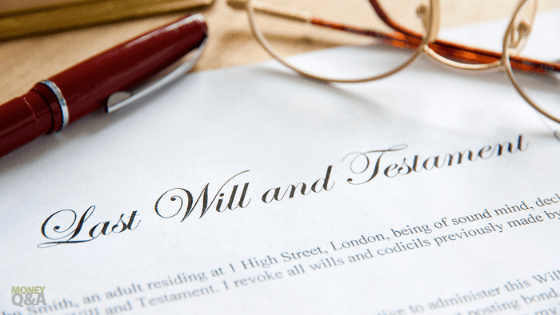Famed pop musician Prince passed away suddenly in April 2016, felled by the opioid epidemic ravaging America. As fans across the world mourned, reports emerged that the “Purple One” had died intestate — without a will outlining his final wishes, nor a trust set up for the benefit of his heirs.
Prince’s situation was further complicated by his lack of direct heirs. He had no living children, who’d normally stand to inherit his vast wealth. After months of contentious legal battles, Prince’s several surviving half-siblings walked away with the lion’s share of his fortune, shrunk considerably by legal fees.
The whole mess could have been avoided with a comprehensive estate plan. To be fair, most of Prince’s A-list compatriots do have such plans, as do many high net worth individuals. But poor estate planning is distressingly commonplace, even among those whose heirs have much to lose from the inefficient disposition of assets.

10 Reasons to Set Up an Estate Plan
If you have yet to set up an estate plan, it’s time to get serious about doing so. Check out these 10 arguments in favor of establishing an estate plan.
1. Any Estate Plan Is Better Than None at All
The aftermath of Prince’s death is a cautionary tale for any individual with substantial personal assets, even those whose net worths don’t compare to Prince’s $100 million-plus trove. Drawing up a last will and testament or creating one or more trusts for the benefit of your heirs is better than doing nothing at all.
2. It May Keep Your Estate Out of Probate
A comprehensive estate plan may keep your estate out of probate — the process that kept Prince’s heirs wrangling for years.
This is important for several reasons, but two in particular bear repeating: reducing the cost of disposing of your assets and maintaining privacy and discretion during what’s certain to be a difficult time for your survivors. Unlike probate, the disposition of assets from a revocable trust need not be public: that is, there’s no reporting or notice requirement, as is the case in many jurisdictions (including the U.S. jurisdiction in which Prince died).
3. It Allows for the Full, Faithful Execution of Your Wishes
Prince was a famously private person, and while he had a handful of intimates in whom he confided and who could plausibly speak to his state of mind, he never outlined his final wishes in a binding document. A last will and testament, living will, medical directive, and/or trusts — all of which may factor into a comprehensive estate plan — go further, allowing for the full and faithful execution of your final wishes. If your estate is sizable or complex, firms provide the ideal combination of customization and discretion.
4. It May Help Care for Heirs or Relatives Who Can’t Care for Themselves
Your estate plan won’t simply provide for surviving heirs with careers of their own. It may also provide security for heirs and relatives who cannot reasonably be expected to care for themselves now or in the future — for instance, children or first-degree relatives with developmental delays, debilitating chronic illnesses, or acute injuries for which the prognosis is uncertain.
5. It Provides Some Measure of Security for Minor Heirs and Non-Working Spouses
Your estate plan may also provide security for able-bodied heirs in whose comfort you have a vested interest — even after you pass from this earth. If your survivors include minor children or non-working spouses and/or ex-spouses, your estate plan can set aside assets and income for their benefit on a temporary or permanent basis. It can also designate a trusted guardian or trustee to manage these assets and income streams.
6. It May Reduce Family Strife and Infighting
Whether you choose to work with a credentialed counseling service or opt to sort out family strife privately, you understand the importance of minimizing conflict in the home. A comprehensive estate plan may reduce the risk of such conflict in the grief-ridden weeks and months following your passing. While this may not turn out to be your most enduring legacy, it’s sure to be a welcome relief for your survivors.
7. It May Provide Protection from Creditors
Depending on the laws in the jurisdiction in which you’ve set up your estate plan and the nature of your assets or interests, your plan may provide critical legal protection from creditors. You’ll want to consult with a trust and corporate services provider to determine the best mix of legal structures with which to protect potentially vulnerable assets.
8. It May Provide Protection from Those Who Wish to Lay Claim to Business Interests or Assets
Likewise, your estate plan can protect your business interests and assets from current or former business partners or investors. If you wish to keep your business interest or assets in your family, or in the hands of designated heirs to the enterprise, you’ll need to consult with a trust and corporate services provider with expertise in such matters.
9. It Provides for Clear Execution of Your Wishes in the Event of Incapacity
Your estate plan need not lay dormant until your death. Your plan should include a healthcare directive and power of attorney designation to ensure that your wishes are faithfully and competently executed should you become incapacitated or incompetent to make legally binding decisions.
10. It Places Responsibility for Your Assets in Capable Hands
Any comprehensive estate plan requires the designation of an executor or trustee — in some cases, more than one — to ensure that your assets are looked after and disposed of capably and efficiently. As Prince’s example shows, this is almost always preferable to a court-appointed process.
Are You Ready to Set Up an Estate Plan?
The nice thing about setting up an estate plan is that you only need to do it once. To be sure, a proper estate plan requires maintenance as circumstances change, but the actual effort involved in creating the structure of your estate plan need only be expended once. Thereafter, you and your family are free to focus on the more enjoyable aspects of life together — knowing that, should the unthinkable come to pass, those who survive you will be well cared for.

